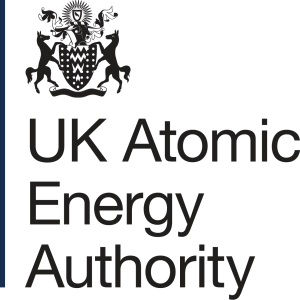As part of the Inside Careers series of graduate Employer Q&As, in October 2013 leading patent employer Mathys & Squire answered your questions.
Find out more about Patent Employer Mathys & Squire.
The Questions
What do Mathys & Squire look for in an applicant? ➜
What level of education is most helpful when entering the profession? ➜
Do Mathys & Squire recruit non-EU passport holders? What would the application process for these candidates involve? ➜
Is there an upper age limit for the patent attorney trainees that you recruit? ➜
Are Mathys & Squire looking to recruit any trainee trade mark attorneys for 2014? If so what would the criteria for these positions be? ➜
How does Mathys & Squire feel about a candidate who has attended Open Days of other IP law firms? Is it viewed as relevant experience and should it be included on a CV? ➜
I have a PhD in medicinal chemistry. Are there any other courses/jobs/part-time work I can undertake to enhance my job prospects? ➜
It seems that in the biosciences, a much higher proportion of patent attorneys hold PhDs compared to other fields. Is there a reason for this? ➜
I have an undergraduate degree in Zoology and a PhD in Ecotoxicology of Nanomaterials – how relevant would my qualifications be in the patent attorney field? ➜
What training and examinations support does Mathys & Squire offer to trainee patent attorneys? ➜
I have studied Competition and Intellectual Property law as part of my degree and would like to become a patent attorney: what is the best route to becoming a patent attorney for law graduates? ➜
Is it possible to work first as a patent examiner and then convert to becoming a patent attorney? ➜
If a person is part-qualified as a patent attorney, is it possible to become fully-qualified without being affiliated with a patent firm? ➜
_________________________________________________________________________________
The Answers
What do Mathys & Squire look for in an applicant?
Are there any skills or attributes that Mathys & Squire in particular look for in an applicant?
Robert, University of Oxford
How can a student improve their application success with you?
Amy, University of Nottingham
We are first looking for a strong academic record at A level and first degree in a technical field (generally science or engineering) – a PhD is not essential.
We are interested in candidates who can show a keen and demonstrable interest in joining the profession, and then: good communication skills and excellent written and verbal proficiency in the English language, particularly from a technical perspective, attention to detail, strong commercial skills, an enquiring mind when it comes to technology, especially a curiosity about how things work, and lots of energy. We are also seeking candidates with good interpersonal skills, who can interact well with colleagues and clients.
_________________________________________________________________________________
What level of education is most helpful when entering the profession?
How important is it to have a PhD to enter the patent profession?
Ahranee, Imperial College London
Are graduates with just an undergraduate degree still considered for trainee roles?
Hayley, Open University
Would a masters degree be considered advantageous when entering the profession?
Lewis, University of Warwick
We have fee-earners who joined the firm at first technical degree, Masters and PhD level. Higher degrees can be an advantage but other skills, both commercial and inter-personal, can be equally important.
_________________________________________________________________________________
Do Mathys & Squire recruit non-EU passport holders? What would the application process for these candidates involve?
Sam, Queen Mary University London
In all honesty, we are looking for the best candidates to join the firm. However, if we can find great candidates who are able to start immediately without the need for work permits, then they are our preference.
Please also be aware that in order to be able to represent clients at the EPO you must be a national of a contracting state to the European Patent Convention.
_________________________________________________________________________________
Is there an upper age limit for the patent attorney trainees that you recruit?
Gary, Cardiff University
There is no upper age limit for applicants to become trainee patent attorneys. However, were we to receive applications from more “senior” candidates, we would need compelling evidence as to why they wanted to join the profession at such a late stage in their careers.
_________________________________________________________________________________
Are Mathys & Squire looking to recruit any trainee trade mark attorneys for 2014? If so what would the criteria for these positions be?
Agnes, Queen Mary University London
At the moment we are not planning to recruit trainee trade mark attorneys in 2014.
_________________________________________________________________________________
How does Mathys & Squire feel about a candidate who has attended Open Days of other IP law firms? Is it viewed as relevant experience and should it be included on a CV?
Amy, University of Nottingham
Candidates who can support their interest in joining the profession by attending open days or seeking placements at other IP private practices are very welcome. It shows that they have supported their interest by gaining some real experience, and can then demonstrate some insight into the profession, the sort of tasks that they will be undertaking and the skills that they will be developing. And yes, such experience should definitely be included on their CV.
_________________________________________________________________________________
I have a PhD in medicinal chemistry. Are there any other courses/jobs/part-time work I can undertake to enhance my job prospects?
Laura, University of Bradford/University of Liverpool
There are a number of ways in which candidacy to join the profession can be enhanced. Attendance at open days and/or seeking work placements in the profession are just two possibilities. It may also help to seek a discussion with an experienced attorney. Attendance on the Masters in IP Law programme is another potential assistance. Being able to demonstrate understanding at a basic level as to how the patent process works, as well as having a basic appreciation of how patents are written and why, will also help.
_________________________________________________________________________________
It seems that in the biosciences, a much higher proportion of patent attorneys hold PhDs compared to other fields. Is there a reason for this?
Lewis, University of Warwick
The statistics are not readily available to answer this question but, in this firm, there is not a bias towards those with PhDs. Our split in biosciences is about 50:50.
_________________________________________________________________________________
I have an undergraduate degree in Zoology and a PhD in Ecotoxicology of Nanomaterials – how relevant would my qualifications be in the patent attorney field?
Shona, University of Edinburgh
The field in question seems narrow – much would depend upon how well you can demonstrate a wider understanding of scientific matter, as well as the other aptitudes and skills, such as the inter-personal and commercial, that we would be seeking.
_________________________________________________________________________________
What training and examinations support does Mathys & Squire offer to trainee patent attorneys?
Sapna, Open University
We have a comprehensive training and development policy to develop our trainees into high quality patent attorneys who can provide the very best level of service to our clients. These include:
- Attendance at the Queen Mary Certificate in IP Law programme;
- Development via on the job training supervised by an experienced and qualified attorney;
- Training events such as regular case law reviews and tutorials, the latter both internal and via the professional body;
- A programme of preparation for exams including the tackling of past papers;
- Involvement in internal ‘moots’ to facilitate the development of advocacy skills;
- Study leave to prepare for professional exams.
_________________________________________________________________________________
I have studied Competition and Intellectual Property law as part of my degree and would like to become a patent attorney: what is the best route to becoming a patent attorney for law graduates?
Rochelle, University of Surrey
Without a degree in a science based subject, it is not possible to become a qualified patent attorney.
_________________________________________________________________________________
Is it possible to work first as a patent examiner and then convert to becoming a patent attorney?
Lewis, University of Warwick
Yes – candidates would need to demonstrate the required skills and aptitudes but there is no barrier to moving from examiner status to trainee patent attorney.
_________________________________________________________________________________
If a person is part-qualified as a patent attorney, is it possible to become fully-qualified without being affiliated with a patent firm?
Anonymous, University of Oxford
Without being affiliated to a patent practice, either ‘in house’ or in private practice, It would not be possible to become a European Patent Attorney, because this requires supervision by a qualified European Patent Attorney for at least three years before taking the exams.
With regard to the UK, requirements are set out at length on the IPREG website.






